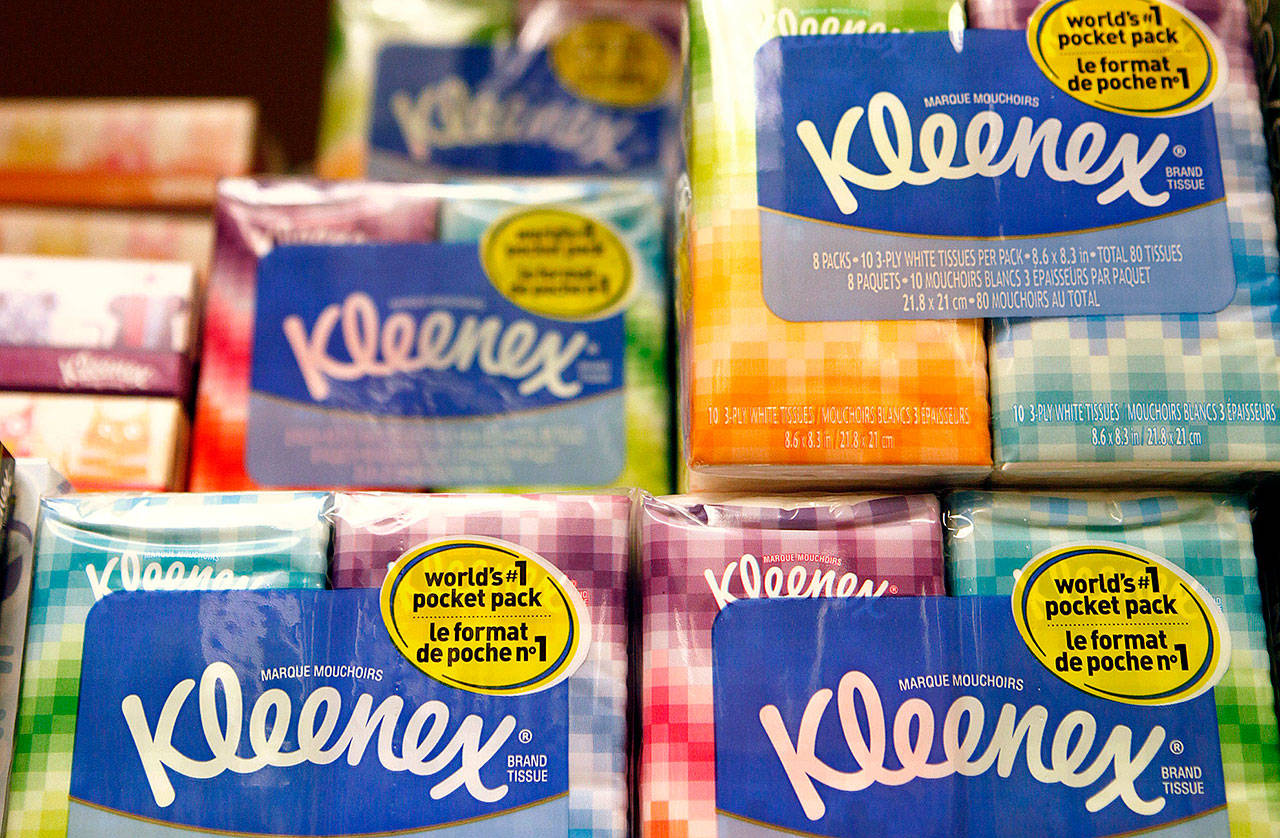By Aaron Gregg / The Washington Post
In the weeks since the GOP tax bill went into effect, numerous U.S. companies promised to pass their savings on to workers through bonuses and salary increases.
But Kimberly-Clark, the Dallas-based maker of Kleenex, Huggies, Kotex and other consumer products, plans to use some of its windfall to cover the costs of shrinking its workforce by as much as 13 percent as it shutters factories and reorganizes operations.
The company said Tuesday it plans to dismiss between 5,000 and 5,500 people and sell or close about 10 manufacturing facilities in what chief executive Thomas Falk described in a Tuesday call with analysts as “difficult but necessary actions to make the Kimberly-Clark an even stronger company going forward.”
Executives declined to say which factories the company would be closing, citing the need to consult with unions, work councils and other stakeholders. They said some of the savings would be used to expand production at other facilities.
Chief financial officer Maria Henry said the company’s gains from tax reform would help offset the cost of the restructuring plan. The company had an effective tax rate of 28.6 percent in 2017, and the rate would drop to between 23 and 26 percent in 2018 as a result of congressional action, boosting year-over-year earnings growth by 6 points, she told analysts during a conference call to discuss recent financial results.
“We also anticipate ongoing annual cash flow benefits from tax reform,” Henry said. “That provides us flexibility to continue to allocate significant capital to shareholders while we also fund increased capital spending and our restructuring program over the next few years.”
Along with many of its peers in the retail industry Kimberly-Clark has been buffeted for years by falling commodity prices. The company’s revenue rose by 1 percent in the fourth quarter of 2017, compared to the same period a year earlier, but the numbers are down significantly from 2014. Profits rose by 21 percent, or $1.75 a share for the quarter.
Executives cited declining fertility rates in the United States and South Korea as factors that have contributed to a decline in diaper sales, long considered one of Kimberly-Clark’s bedrock lines of business. Competition is also heating up. Amazon.com, for instance, launched its own private label brand of diapers late last year. (Amazon chief executive Jeff Bezos owns The Washington Post.)
Executives have tried to fill the gap through a cost-cutting program it calls FORCE, or “Focused On Reducing Prices Everywhere,” which is meant to make its factories and distribution lines more efficient. Executives told analysts that the company has saved about $450 million in the past year as part of that program program, as part of a planned $1.5 billion cost-reduction over the next four years.
Part of that has come from eliminating certain full-time service positions while hiring elsewhere.
“We are moving to a global business services platform for our more transactional and standard work,” Henry said Tuesday. “And when you do that, when you think about it, we are removing a role that is in country, so we are paying the full severance on that position that we are taking out, and we are hiring that role in a different location in our shared services center.”
The company has seen some initial success expanding to new markets, with sales in its personal care segment up by wide margins in Latin America, China and Eastern Europe.
Kimberly-Clark’s stock price dropped slightly on Tuesday morning following its earnings announcement but recovered throughout the day, finishing up nearly 0.8 percent to $117.84.
Talk to us
> Give us your news tips.
> Send us a letter to the editor.
> More Herald contact information.

























